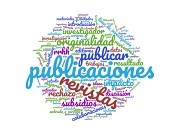Certainties and uncertainties affecting the postdoctoral phase of the scientifc career in Argentina
DOI:
https://doi.org/10.25260/EA.18.28.3.0.734Abstract
In the postdoctoral stage several challenges and questions defne our development and consolidation as researchers. Based on the guidance of trained researchers, we identifed various certainties and uncertainties during this phase. We also highlight several tools to achieve a good academic performance and obtain a position as researchers of the Consejo Nacional de Investigaciones Científcas y Técnicas (CONICET). The main certainty was that publishing is a 'must': it is essential to transmit the knowledge to the community and it is the most valued aspect by the CONICET. However, a publication involves much more than writing a manuscript. Detecting the conceptual contribution and the originality of our work is fundamental. One of the uncertainties identifed was producing several high-impact publications, while performing other activities (e.g., human resources training, teaching, grant applications and stays abroad) during the seven years that fellowships usually last (fve for Ph.D. and two for postdoctoral fellowships). Other uncertainties are the constantly changing rules and the increasing requisites to meet CONICET conditions for researchers. Besides, the scarce stability of resources to research and the need to develop original ideas are particularly uncertain at this stage. Those wanting to develop a scientifc career in Argentina must outline a strategy. We propose ‘successful’ postdoctoral fellows’ profles to fnd pathways towards a permanent position at the CONICET scientifc career, with good development prospects. As a way to open a fruitful debate, your survey feedback will be highly valued. Said survey is available at (goo.gl/forms/k185nQG8ABxjL4bo2, until March 31st, 2019), addressed to doctoral students, postdoctoral fellows and researchers with permanent positions. This will allow opening the range of profles and opinions. This debate may be a guide for those young researchers willing to perform successfully as Scientists within our country.
https://doi.org/10.25260/EA.18.28.3.0.734
References
Aarssen, L. W., T. Tregenza, A. E. Budden, C. J. Lortie, J. Koricheva, and R. Leimu. 2008. Bang for Your Buck: Rejection Rates and Impact Factors in Ecological Journals. The Open Ecology Journal 1:14-19. DOI: 10.2174/1874213000801010014.
Åkerlind, G. S. 2005. Postdoctoral researchers: roles, functions and career prospects. Higher Education Research and Development. DOI: 10.1080/0729436052000318550.
CONICET. 2018. Ingresos CIC - Temas Estratégicos y Tecnología. URL: convocatorias.conicet.gov.ar/temas-estrategicos.
Baron, N. 2010. A guide to making your science matter. Escape from the ivory tower. Island Press, Washington DC, EE.UU.
Editorial Nature. 2016. Early-career researchers need fewer burdens and more support. Nature 538:427-427. DOI:10.1038/538427a.
Farji-Brener, A. G., and A. Ruggiero. 2010. ¿Impulsividad o paciencia? Qué estimula y qué selecciona el sistema científico argentino. Ecología Austral 20:307-314.
García-Romero, A. 2000. El efecto de la estancia postdoctoral en la productividad científica. URL: URL: goo.gl/1MA1Nb.
Grod, O. N., C. J. Lortie, and A. E. Budden. 2010. Behind the shroud: a survey of editors in ecology and evolution. Frontiers in Ecology and the Environment 8:187-192. DOI: 10.1890/090048.
Kahn, S., and D. K. Ginther. 2017. The impact of postdoctoral training on early careers in biomedicine. Nature Biotechnology 35:90-94.
Loehle, C. 2009. Becoming a Successful Scientist: Strategic Thinking for Scientific Discovery. Cambridge University Press, Cambridge, New York.
Nerad, M., and J. Cerny. 1999. Postdoctoral Patterns, Career Advancement, and Problems. Science 285, 1533. DOI: 10.1126/science.285.5433.1533.
Rodríguez Mega, E. 2016. Argentina’s scientists engulfed in budget crisis. Science. DOI: 10.1126/science.aal0388.
SCImago. 2007. SJR - SCImago Journal and Country Rank. Retrieved July 21, 2015, from URL: www.scimagojr.com.
Vicens, Q., P. E. Bourne, and K. Karbstein. 2009. Ten Simple Rules To Combine Teaching and Research. PLoS Computational Biology 5:e1000358. DOI: 10.1371/journal.pcbi.1000358.
TSS. 2016. Agencia de Noticias Tecnológicas y Científicas de la Universidad Nacional de San Martín. URL: www.unsam.edu.ar/tss/la-ciencia-recortada.
Zygomatic. 2016. Generador de nube de palabras y creador de nubes de etiquetas gratis y online. URL: www.nubedepalabras.es.

Downloads
Published
How to Cite
Issue
Section
License
Copyright (c) 2018 M. Fernanda Reyes, M. Victoria Piazza, Marta C. Telesnicki, Luciana D'Acunto, Carla E. Di Bella, Florencia Spirito, Pablo A. García-Parisi, Josefina L. De Paepe, Romina A. Cavagnaro

This work is licensed under a Creative Commons Attribution 3.0 Unported License.
Authors retain their rights as follows: 1) by granting the journal the right to its first publication, and 2) by registering the published article with a Creative Commons Attribution License (CC-BY 4.0), which allows authors and third parties to view and use it as long as they clearly mention its origin (citation or reference, including authorship and first publication in this journal). Authors can make other non-exclusive distribution agreements as long as they clearly indicate their origin and are encouraged to widely share and disseminate the published version of their work.


